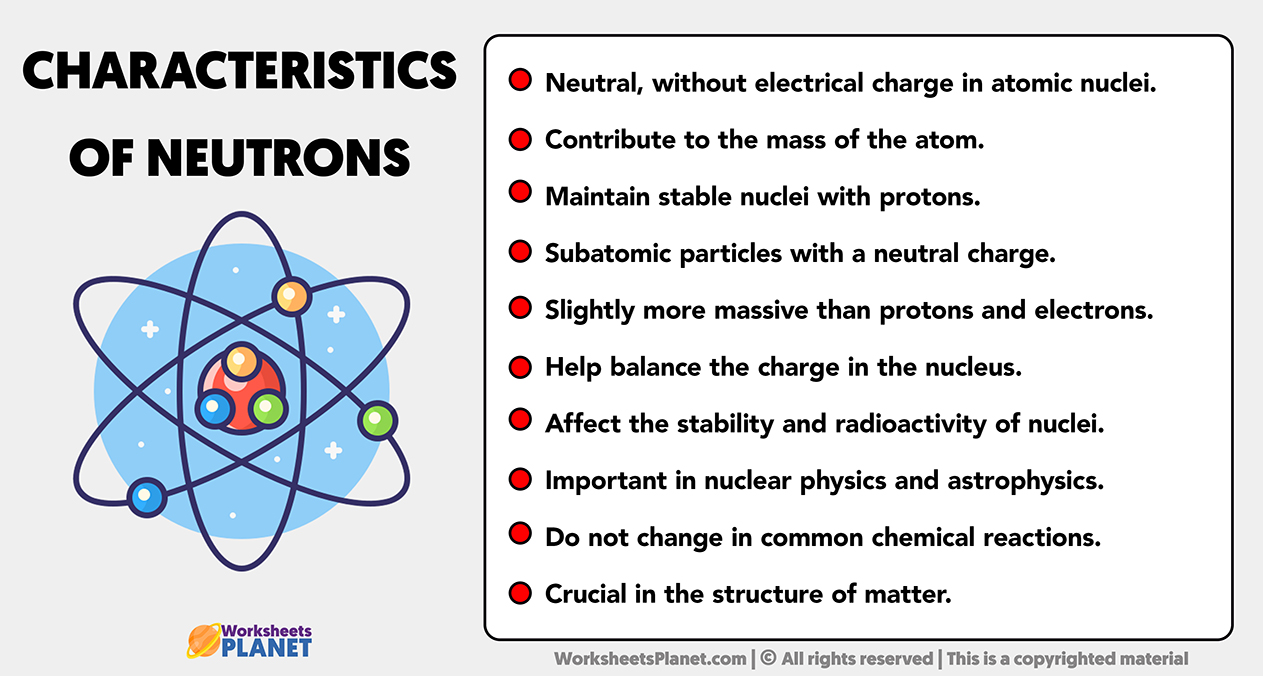A neutron is a neutral subatomic particle located in the atomic nucleus alongside protons. It lacks an electrical charge, contributing to the nucleus’s mass. Neutrons play a crucial role in stabilizing the nucleus by counteracting the repulsion between positively charged protons.
The number of neutrons in an atom influences its isotope and nuclear properties, affecting stability and radioactive decay.

Main characteristics of Neutrons
- Neutral, without electrical charge in atomic nuclei.
- Contribute to the mass of the atom.
- Maintain stable nuclei with protons.
- Subatomic particles with a neutral charge.
- Slightly more massive than protons and electrons.
- Help balance the charge in the nucleus.
- Affect the stability and radioactivity of nuclei.
- Important in nuclear physics and astrophysics.
- Do not change in common chemical reactions.
- Crucial in the structure of matter.

